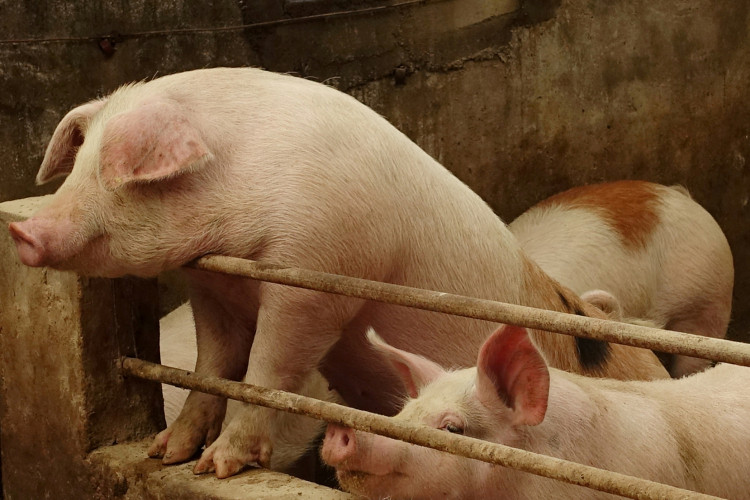Domestic agricultural company New Hope Liuhe Co., Ltd., said it is building "zero-labor" factories, utilizing artificial intelligence as well as the Internet of Things, for its pig-farming business.
Lean Management, Fat Pork
"In the '5S' pig farm currently under construction located in Beijing, each workshop will contain thousands of pigs without human labor," said Liu Yonghao, the chairperson of New Hope Group, during a recent speech in Renmin Business School.
Consisting of Sort, Set in Order, Shine, Standardize and Sustain, 5S is termed a visual management system. It is based on Japanese principles of lean management to organize a modern working environment.
Data of temperature, humidity, nitride, oxygen content, organic matter, and even pigs' sound will be collected and uploaded to cloud computing for analysis, acting as a key step for decision-making during raising pigs, according to the speech.
Liu added the "zero-labor factory" system helps eliminate risks of bringing bacteria or virus like African swine fever into workshops. Compared to Chinese traditional methods of pig farming, the new technological operation can remove 90% of human labor.
In a speech addressing a news conference last month, Liu stated that the company had set up a research institute that specializes in digital pig farming, using tens of thousands of high-definition cameras, sensors, and IoT systems to manage and control it via cloud computing.
Growing Pigs, Growing Debt
Pork is a major staple in the Chinese diet, but since 2018, the African Swine Flu has decimated domestic production.
Despite the COVID-19 pandemic and weakened pork demand, especially in foodservice sectors, China imported over 2.07 million tons of pig meat and 656,344 tons of pork offal in the first half of 2020, increasing by 153.3 and 33.2% respectively over the previous year, according to China Customs data.
Domestic pig producers that remain unaffected by ASF have scaled up their production. New Hope sold 3.6 million pigs in 2019 and plans to produce 15 million by 2021 and 25 million in 2022.
The company's expansion of pig-farming operations has also drastically increased the scale of its debt. Current liabilities account for 70% of its total debt, while short-term loans, especially credit loans, saw a year-on-year rise, according to rating agency CCXI's report.
The agency said it would pay close attention to its nearly 20-billion-yuan investment scale this year.
As of the first quarter, New Hope Group had nearly 80 billion yuan in debts, an increase of 10 billion yuan from the end of last year, according to Beijing News.
The company issued 10 billion in corporate bonds June 18, allotting 9 billion yuan to repay debts with interest. The remaining 1 billion yuan will be applied as working capital.
It's estimated the company had profits between 1.63 and 1.83 billion yuan in profits in Q3, a rise of 7.97% to 21.21% year-on-year, while its rival Muyuan Foods saw an increase in profits of over five times during the same period.
The company explained on its social media platform the reason for its minor profit increase during this period was high expense in pig farming preparations for next year.
"Pig Chip" & Pork Chops
Though the company had fast development in the pig-farming business since 2015, experts say, it didn't start the most critical part - pig breeding - until the latter half of 2019.
"Pig-breeding is like making computer chips in the pig business," said Liu. "We need to have more of our own breeds rather than heavily depending upon imports."
In the domestic market, 98% of pigs are exported from overseas land, while only 2% of pigs are bred in China. In the past 10 years, nearly 10,000 breeding pigs were Imported annually.
Imported pigs reportedly have faster growth period than domestic pigs with higher ratio of lean meat.
New Hopes
This summer, New Hope Liuhe released its first English version of its Corporate Social Responsibility report and annual report. The company stated it has been committed to building an investor-friendly company and the two reports aim to deliver its investment value to overseas investors, "in more detail and constantly improve its international level."
The Corporate Social Responsibility report is an important means for the company to disclose to investors the corporation's non-financial information.
In April 2019, the company invested 1.147 billion yuan in pig farming in Vietnam and followed with another 510 million yuan in investment in October last year.
Liu said by mid-2021, pork prices should return to normal levels, as they were before the African swine fever.





